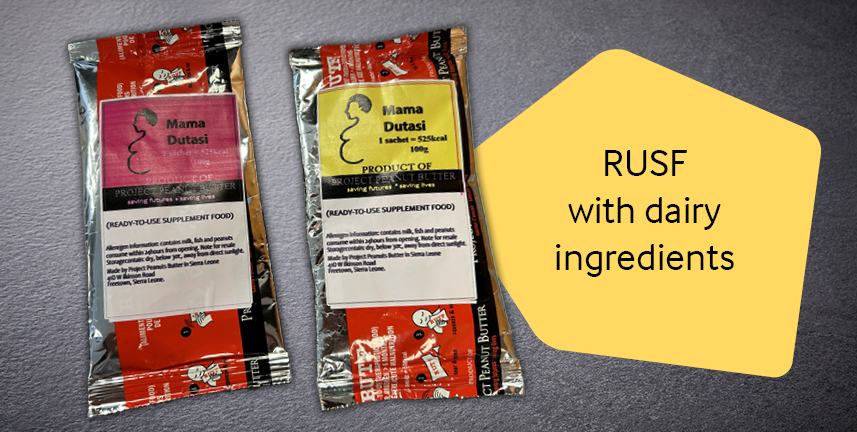20% of pregnant women are undernourished in sub-Saharan Africa. It’s time to recognise their need for specialised nutrition, says child malnutrition expert.
Precisely 15 years have passed since child malnutrition expert Dr Mark Manary met the affordable nutrition team at Arla Foods Ingredients for the first time.
Numerous studies and a new UNICEF nutrition specification later, he returned to Denmark recently to talk about his latest study, which is investigating the effect of ready-to-use supplementary food (RUSF) in undernourished pregnant women.
“In sub-Saharan Africa, being undernourished during pregnancy is very common. In the places where I work – Sierra Leone, Ghana and Malawi – it’s about 20% of pregnant women. That’s a big problem for them and their baby. The babies are smaller, more of them die and the mothers have more complications during their pregnancy,” Manary says.
According to his own estimate, around 75% of the 30+ malnutrition treatment studies he has initiated over the years have included whey-based ingredients from Arla Foods Ingredients in the RUSF recipe.
Changing the UNICEF specification
UNICEF has recognised the importance of dairy protein ever since the publication of the first RUSF specification in 2007. Prior to that, the use of milk-based ingredients was rare in food aid products.
In 2022, the findings of Manary and his team led UNICEF to add dairy permeate powder to its RUSF nutrition specification for children aged six months and above with moderate acute malnutrition.
Whey – a cost-effective nutrient source
The studies have shown that whey permeate and whey protein isolate (WPI) are a cost-effective source of essential nutrients.

“Every time RUSF is tried with less or no dairy ingredients, the results are always inferior. You can make something equivalent in terms of amino acid content, for example, but the RUSF with dairy ingredients will still perform better clinically. So there’s something in there that makes a difference.”
Evidence of a real nutritional need
One of those studies found that a daily 500-calorie portion of RUSF with WPI helped undernourished pregnant women in Sierra Leone gain weight, while their new-born infants were longer and heavier and had a better survival rate[1].
Building on those good results, Manary’s team is now investigating the same RUSF with added fish oil – a source of omega-3 fatty acids. The outcome of an initial feasibility and acceptability study were published in April this year[2]. By the time the current study is complete in the summer of 2025, Manary expects the trial will have reached around 1,600 women.
“The everyday goal is just to help the women who are standing in front of you. But the really ‘big picture’ goal, as we gather this evidence, is to make a standard that recognises the need to provide undernourished pregnant women with specialised food.”
1. Hendrixson DT, Koroma AS, Callaghan-Gillespie M, Weber J, Papathakis P, Manary MJ. Use of a novel supplementary food and measures to control inflammation in malnourished pregnant women in Sierra Leone to improve birth outcomes: study protocol for a prospective, randomized, controlled clinical effectiveness trial. BMC Nutr. 2018 Apr 2;4:15. doi: 10.1186/s40795-018-0218-y. PMID: 32153879; PMCID: PMC7050866.
2. Koroma AS, Gustafson B, Kohlen C, Moore M, Ngegbai S, Kleban E, Wegner DR, Kidd P, Stephenson KB, Li YN, Brenna JT and MJ Manary. Feasibility and acceptability of a supplementary food with added fish oil and choline for undernourished pregnant women in Sierra Leone. Afr. J. Food Agric. Nutr. Dev. 2024;24(4):26072-26093. https://doi.org/10.18697/ajfand.129.24480

